🇳🇮 What El Tren del Norte means to Estelí - and Nicaragua
How Real Estelí is putting its city on the map with wins like Tuesday's vs. América
From Estelí, Nicaragua
As Tuesday night became Wednesday morning in Estelí, Nicaragua, it felt like every child in the city had negotiated a later bedtime and had managed to finagle a way into the VIP parking lot of the Estadio Independencia.
One boy would signal a car he’d seen a Real Estelí player get into. A few hundred yards down the dirt path from the lot to the main road, that player’s car would be mobbed by exuberant young fans.
Everyone wanted a photo with one of their heroes, players who were part of the first-ever Real Estelí team to win a Concacaf Champions Cup match - and one that did it against Club América at that.
The nightclub attached to Real Estelí’s Estadio Independencia pulsated with reggaeton hits as fans wearing red jerseys danced. In the center of town, bars slated to close hours earlier cracked open Toña after Toña as the celebrations carried on into the night.
All week, Real Estelí’s social media accounts had been amiably educating fans from Mexico and abroad about the city, the club, the stadium and more.
After the game, no further explanation was needed. Estelí is home to Nicaragua’s best soccer team, best fan base and, at least Tuesday night, the best party in Central America.
Estelí has cigars. It has beautiful, mountainous landscapes. And it has Real Estelí.
While it’s Nicaragua’s eighth-largest city, Estelí has no doubt become the most important place in the country when it comes to soccer, something only emphasized Tuesday when Real Estelí topped mighty Club América 2-1 in the first leg of a Concacaf Champions Cup series.
The connection between the club and this city of around 115,000 people, though, goes far beyond simply giving residents bragging rights
“Real Esteli represents the city of Esteli in all its splendor,” Raiti Gutierrez tells me.
The leader of La Barra Kamikaze, the club’s supporters’ group, Gutierrez has been supporting the team for more than 30 years and a member of the barra since 2002. “It’s the passion, that feeling of a club of the people. It’s been growing as the years have gone and become more emblematic as a representation of the city of Estelí.”
In addition to those natural resources and the allure of a fine tobacco product, the soccer club now has become one of the most important reasons drawing both Nicaraguans and foreign tourists to “The Diamond of the Segovia”
“For me and for a lot of us, Estelí is the best city in the world,” Gutierrez said. “Everyone has their perspective, but it’s good for people to come and see the city, there’s a lot of tourism with the mountains, tobacco and cigar-making which is interesting but also see Real Estelí which is now part of the tourist track in our city.

“Everyone is welcome, and it’s a really nice, clean city with a lot of good people, hard-working and the best team in Nicaraguan soccer.”
Gutierrez and just over a dozen other members of Kamikaze 99 have come to the center to run through logistics for Tuesday night, tightening drum heads, running through songs and chatting to pass the time before a 9 p.m. kickoff the next night.
The barra members allowed themselves cautious optimism ahead of the showdown with Las Aguilas, the reigning Liga MX champion and current No. 1 in the Concacaf club rankings. Perhaps, just maybe, they could hold off an understrength América squad.
In the end, América manager Andre Jardine rested few of his top players and had to go to the bench to bring them on as América chased a result. Even with Alvaro Fidalgo, Diego Valdes and Jonathan Rodriguez on the field, they couldn’t scrape out a draw.
Byron Bonilla’s first-half panenka showed Real Estelí wasn’t intimidated by the Mexican champion. After all, Real Estelí also had dispatched the then-champions of Costa Rica, Panama, Guatemala, Honduras and El Salvador during its Central American Cup run.
Much of that confidence, players said, comes from the tight relationship it maintains with the fans in Estelí.
“We know we’ve got a lot of things against us, but that’s how Nicaraguans are. We dare to do things differently,” midfielder Bancy Rodriguez told me after the match. “It might surprise people, but we know we’ve got the support of Nicaragua, we’ve got backing from a lot of people and that helps us as a club.”
When asked whether “faith” or “luck” may have been the key to the victory, Real Estelí manager Otoniel Olivas immediately suggested other words. “Work, commitment,” he said with a bemused look on his face.
“We’re happy to be able to compete at this level, and the attitude we had as Real Estelí to be able to get these three points is fundamental,” the manager continued. “For us, it’s transcendental, it’s historic.”
For Real Estelí’s men’s soccer team the next step is clear: Go to Mexico City and try to get a result in the second leg to stun América again and move on in the CCC.
But while Olivas’ men are the most obvious success story when it comes to Real Estelí putting the city on the map, the club is like many in Latin America that is about more than just one sport.
In this sense, the club finds itself at an interesting crossroads. On the one hand, soccer is its flagship offering. On the other, the sport is still making inroads in much of the country.
On the streets of Managua, Major Leagues Baseball gear is by far the most seen article of sports clothing, and this weekend the basketball courts were full of children shooting hoops.
Real Estelí already boasts one of the most successful basketball teams in Central America, having finished runner-up in the Basketball Champions League Americas in 2021 and falling in the quarterfinals of the previous editions.
The club is beginning to push into the country’s most popular sport as well, launching a baseball club, Tren del Norte, and expanding the facility.
Real Estelí also has pro teams in men’s and women’s volleyball and cycling.
“This isn’t just a team, it’s a city. It’s a sporting institution with a lot of franchises,” said Gutierrez, rattling off each sport the club sponsors. “All this growth means people become more fond, more affectionate, bigger fans of the club not just in Estelí but in every department of Nicaragua.”
Erwin Costa is an example of that. The lead singer of ska band LecheBurra, Costa isn’t from the north and has teams he could support in Managua. Yet, as a passionate football fan, he proudly counts himself a Real Estelí supporter and tries to make the three-plus hour bus trip north for as many games as possible to enjoy the stadium atmosphere.
“I think Real Esteli represents all Nicaraguans thanks to the things it has achieved in the last few years,” he told me. “In our country, soccer hasn’t been a sport that plays a big role, however right now we’re achieving things that make everyone happy and make you support a team that is the face of Nicaraguan soccer.”
That’s a claim Real Estelí can make. Despite foreign signings this offseason to shore up the team for CCC play and a run at the league title that escaped it after its long Central American Cup push, Estelí had eight Nicaragua senior national team players on the field for the CCC victory.
“There’s a phrase we use, “Somos Nicaragua”, since Estelí represents national soccer,” Gutierrez said. “As Real Estelí has grown, so has soccer in general.”
As Real Estelí now ponders how to keep improving and boosting Estelí, it also will have to come up with a strategy on how to shoulder some of that national responsibility.
As much Gutierrez and his fellow supporters may not like it, Real Estelí needs rivals to keep pushing soccer forward.
Historic power Diriangén won the most recent league title, and Managua FC had a big winter looking to push for a Central American Cup place. But former power Walter Ferretti, the only team outside that trio to win a title since 2000, is now struggling to sustain positive results.
Developing talent for an entire national team that hopes to match its regional rivals is a big burden to carry for a single club.
“It’s important to keep up with the country’s academies, to put discipline into young players for them to develop,” Costa said. “The U-20 in our country looks good and hopefully they can keep growing and in five or six years we can see Nicaraguan soccer on the same level as Panama, Costa Rica, etc.
“We have to keep pushing and growing and never be satisfied with what we’ve achieved so far.”
Questions loom for Real Estelí to answer as its ambitions get more grand, as it dives in to other sports and social projects. Questions about development, direction and how much one institution can do for a region, for a country.
Those questions weren’t getting answered Tuesday. Instead, fans were happy to celebrate into the night.
Real Estelí won and did it against one of the best teams on the continent, another moment from a club that keeps putting this town in northern Nicaragua on the map.





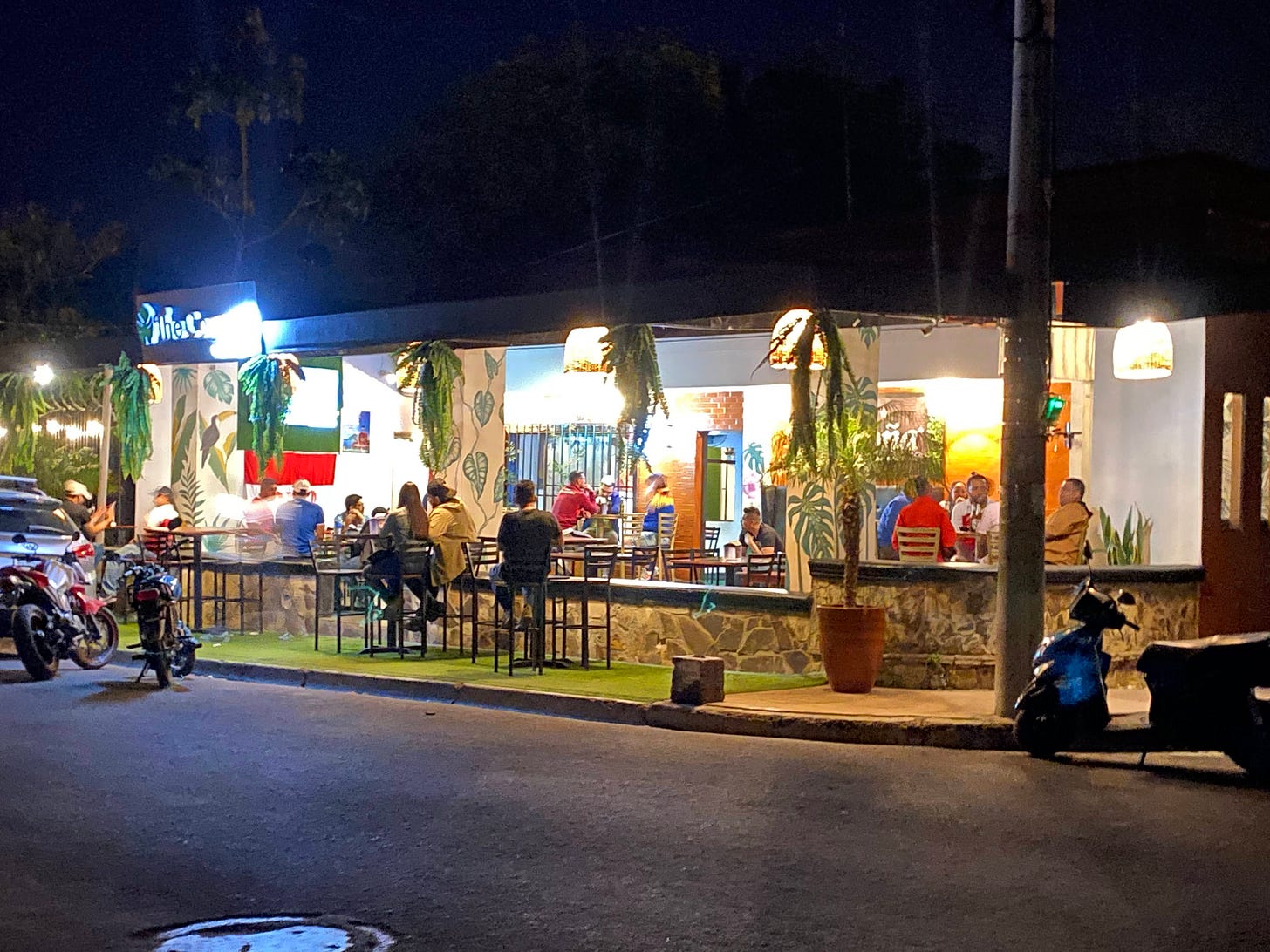
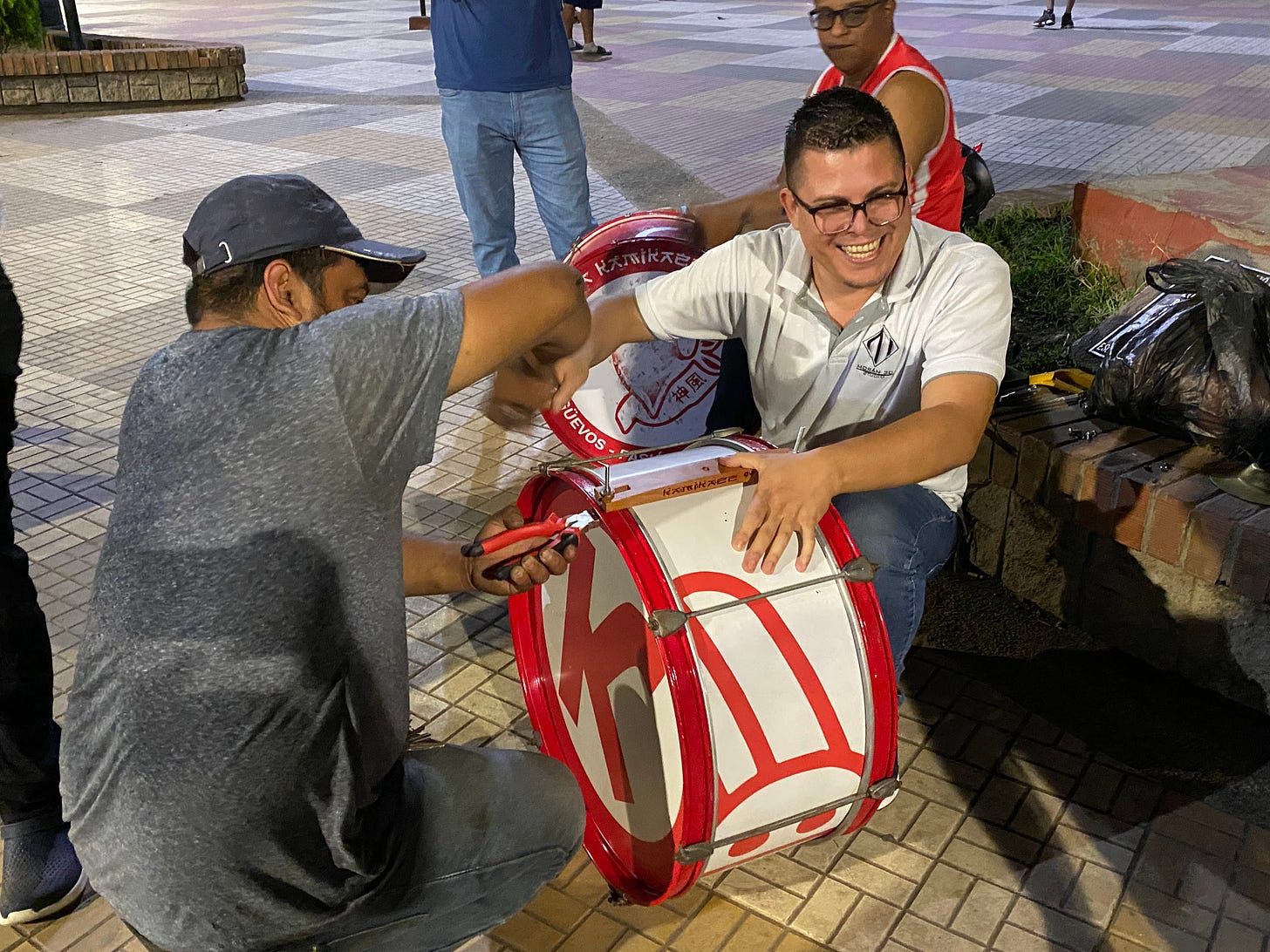

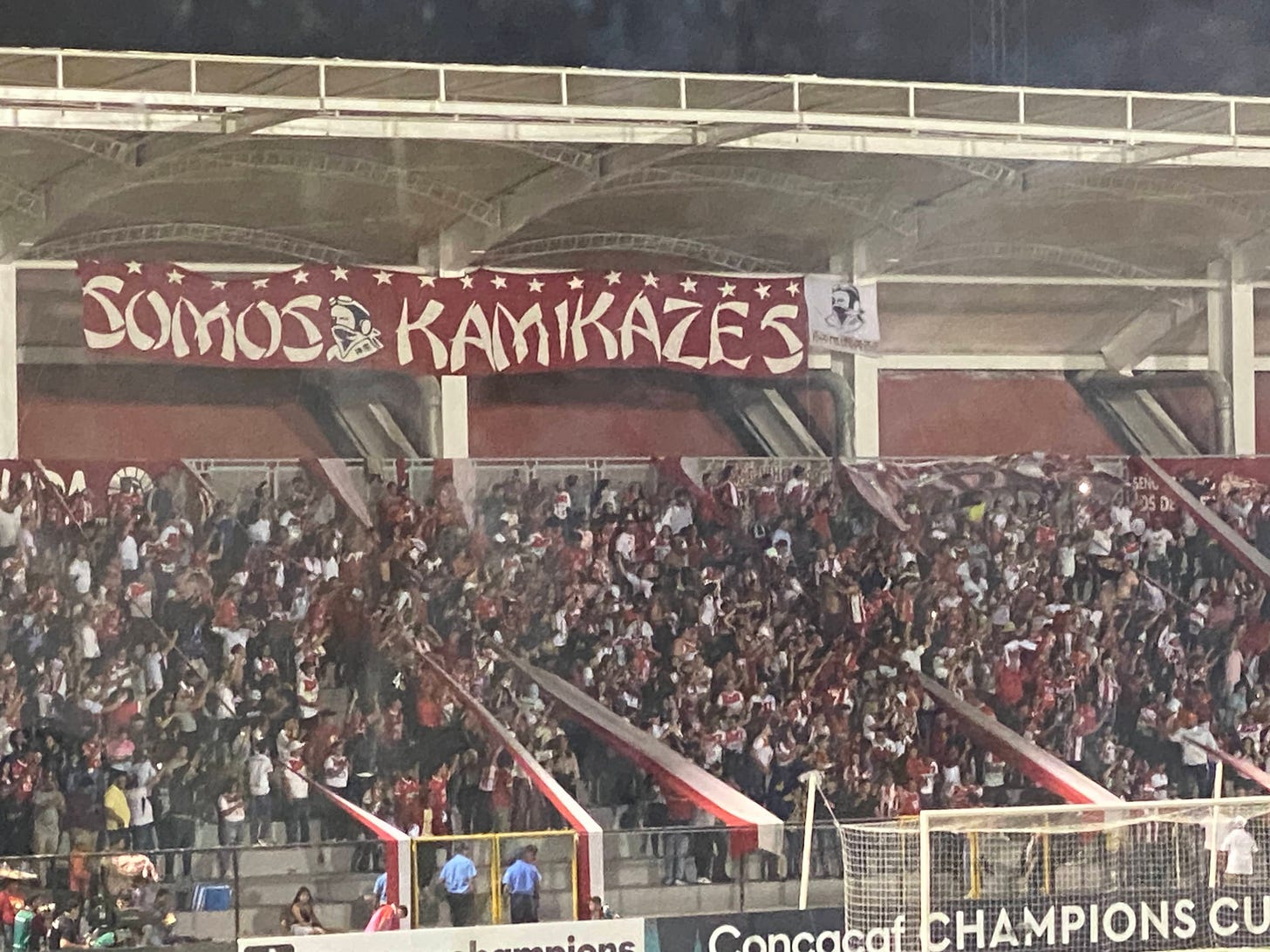
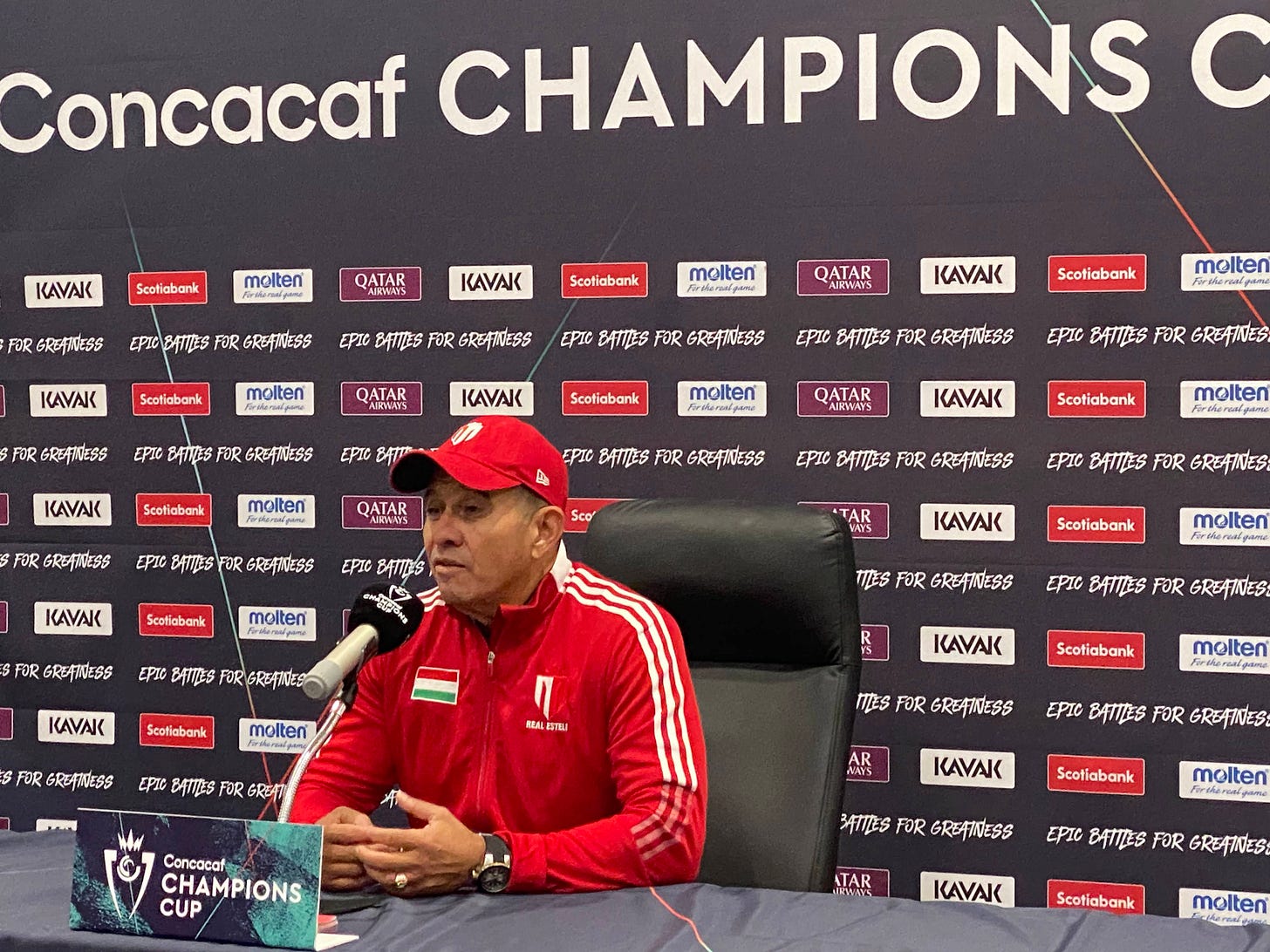
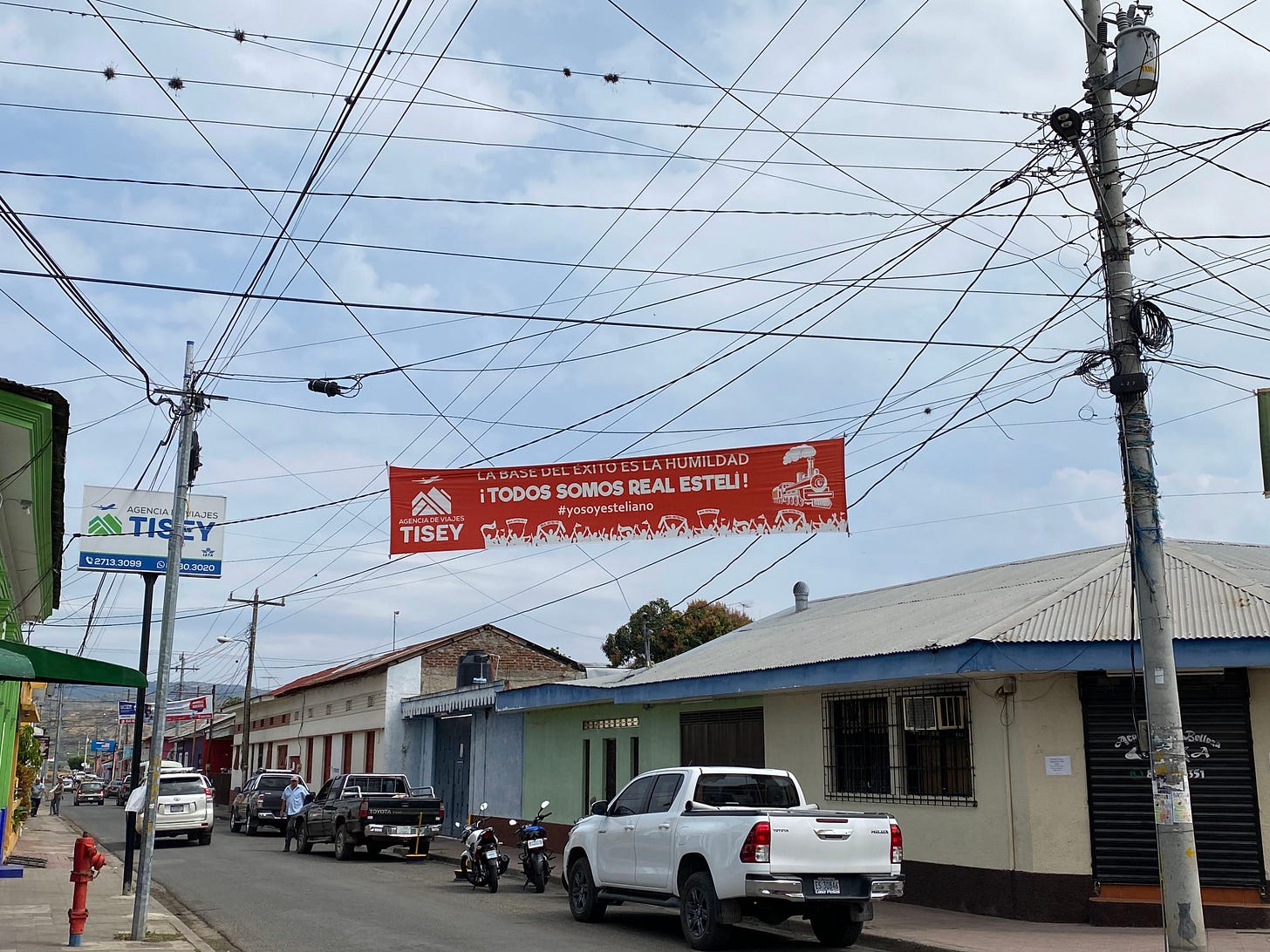
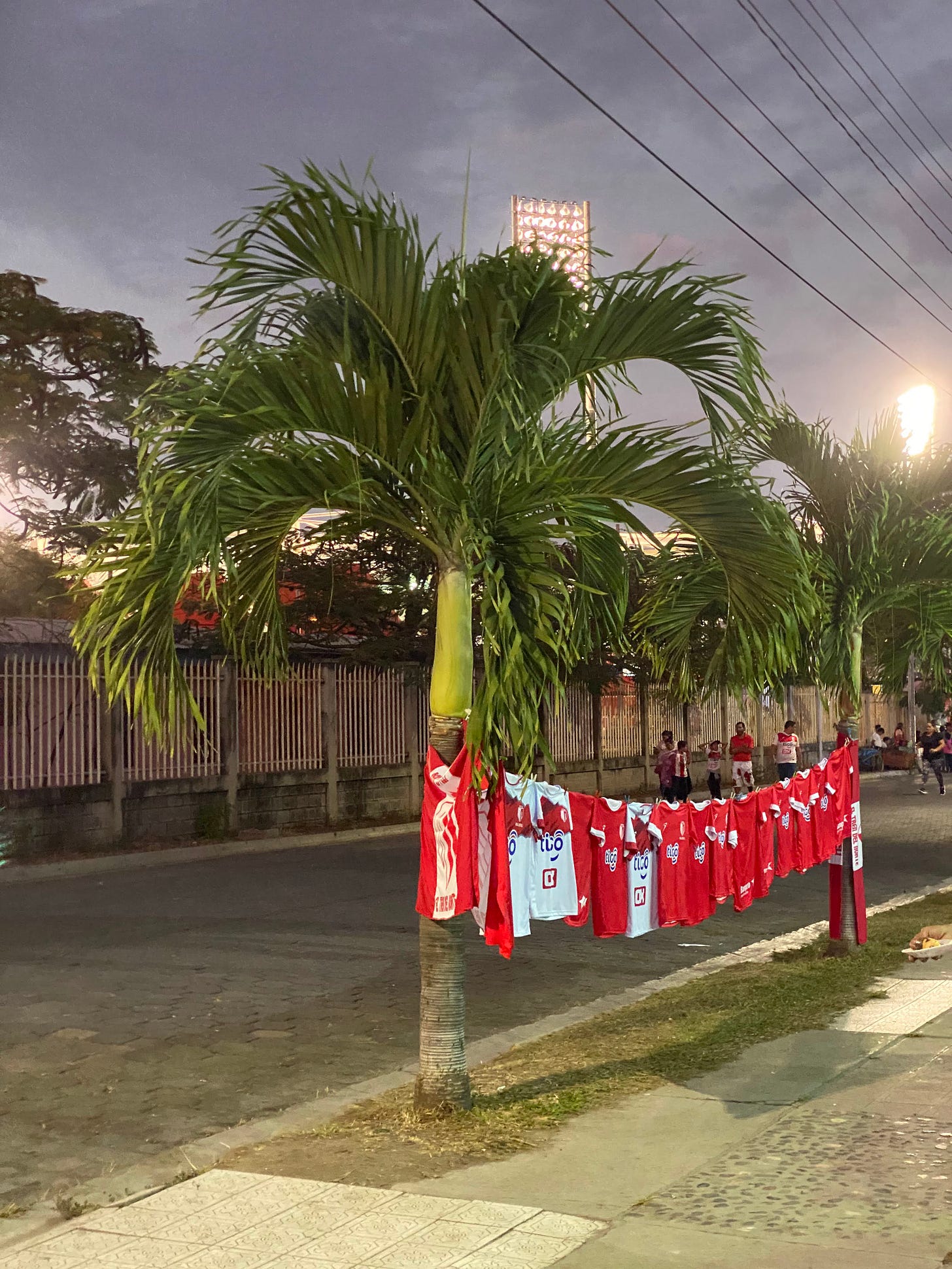
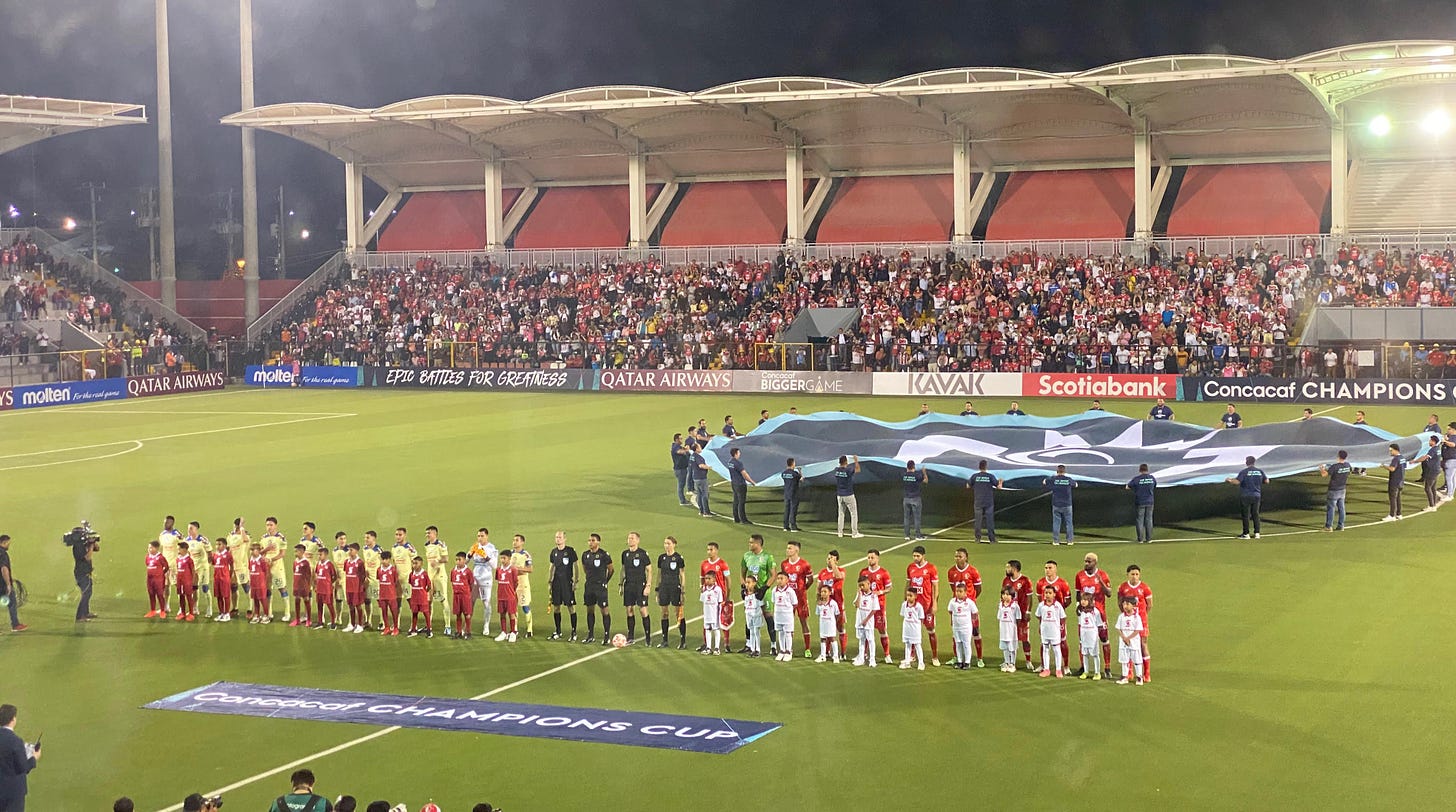
Terrific stuff, Jon
Great piece. Exactly why I subscribe.